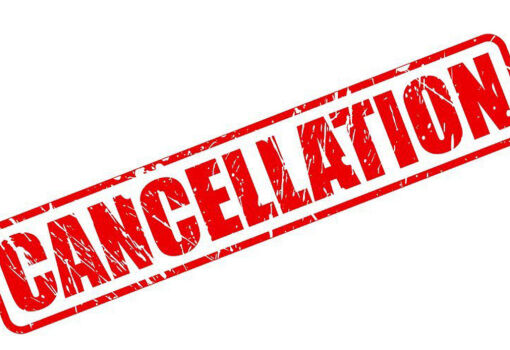
PayPal is an international electronic payment system that allows individuals and legal entities to send and receive money transfers, as well as make online purchases and pay bills. In essence, it is a virtual wallet that is linked to a bank card or account to make payments.
The main advantages of this online platform compared to classic payment instruments, experts consider convenience and security. The system allows you to make payments quickly and easily, without disclosing bank card details for each purchase. And it protects users’ financial data using advanced encryption and fraud protection technologies.
The platform was founded in late 1999 as an online financial services company. Today, it operates in more than 200 countries with 25 national currencies and is a global leader in the field. In 2014. Moldova became the first country in the CIS, where users were able to receive money transfers through PayPal.
But despite the fact that the system has been operating in Moldova for more than ten years, in the legal sense, its use has not been regulated yet. Our legislation did not allow the use of PayPal and other similar platforms for settlements because of many associated risks. For example, the possibility to withdraw money from Moldovan accounts to PayPal accounts in emergency situations. From a macroeconomic point of view, this threatens the collapse of the banking system. Which, of course, cannot be argued with. On the other hand, technology has advanced so much that it is no longer possible to continue turning a blind eye to the existing realities.
Recently Moldova adopted amendments to the Law 62/2008 “On currency regulation”, which allow Moldovan residents (including companies) to open PayPal accounts abroad. So today we can talk about its legalization, even if not quite complete.
Until now, the use of PayPal was possible under certain conditions, which many contractors did not fulfill. Namely: it was impossible to open and withdraw funds received through this system to bank accounts in Moldova without authorization (notification, notification) of the NBM. However, not all its users informed the National Bank, and from a practical point of view, individuals and economic entities used the PayPal system without NBM authorization.
As for taxation, the income obtained through PayPal, as in the case of so-called virtual assets, was taxed only when the funds were declared. Often citizens and companies did not officially show them. If they withdrew the money to bank accounts in Moldova, the State Tax Service saw and taxed it. Legal entities and individuals paid the standard income tax rate of 12%, and if the company was a VAT non-payer, 4% on turnover. At the same time, they remained in the legal field and could, if necessary, explain the origin of the money.
That is why Moldovan companies, when exporting, as a rule, withdrew the received money to the accounts of Moldovan banks. First of all, we are talking about companies providing IT services. It was profitable for them to use PayPal in their work with foreign companies, especially American ones. The thing is that it is easier for American clients to pay for services received from PayPal accounts, which is widespread in the USA. There, it is, conventionally speaking, an electronic bank, the main advantage of which is the minimal commission charged as a percentage of the amount a company or citizen receives.
In addition, Moldova has quite a few freelancers in the field of online services, including training. This includes Moldovan citizens living in America. Suppose a company or individual teaches a foreign language. Clients from America pay him $30-40 per hour of work. Accordingly, when they receive the money, PayPal charges 1% of this amount. Which is very favorable, because in a normal situation, to pay for these services, the client has to pay a fee of about $25 for a regular bank transfer. So for small payments, using this system is very convenient.
After receiving the funds, our company has to withdraw the received funds to a settlement account in Moldova in euros or dollars. Usually the withdrawal of funds was made to the account linked to the business card. But due to the fact that Moldova is not considered a very safe country, banks were afraid to make such transactions. At first, only Victoriabank allowed the withdrawal of funds from a company’s PayPal account to its business card.
The entrepreneurs even had to come up with a scheme whereby the money was transferred to the personal card of the administrator or founder of the company. And then the founder would transfer them to the company’s bank account. But in this case it is possible that the STS will tax both the company and the founder as an individual.
The changes that have been made open opportunities for Moldovan companies that export. But the problem is that the law obliges to first withdraw the received funds to a Moldovan bank account and then make purchases from it. “Let’s say a company received 5 thousand euros in a PayPal account,” explains Andrei Jizdan, doctor of economics, director of Jizdan & Partners, who was involved in drafting the changes on the platform of the Prime Minister’s Economic Council. – And 100 euros of them wants to spend on buying a program abroad. It would be more profitable to pay 100 euros at once and withdraw only 4900 euros. In the approved version of the law, the procedure is more complicated, because first it is necessary to withdraw 5 thousand euros to a Moldovan settlement account, and only then to pay these 100 euros for the service. I.e. today the issue is 70% solved. I believe that it would be possible to establish a certain plafon, so that economic entities could pay directly from PayPal for small purchases or services”.
The issue was hanging in the air, but the National Bank emphasized that electronic payment systems provide loopholes that allow not to declare funds. At the same time, the European company PayPal, which is registered in Luxembourg, has been issued a bank license. And, in fact, it is not a traditional bank, but a bank. The Economic Council proposes to follow the same path.
– We proposed to legalize the system at least for exporting companies,” Jizdan continues. – And the NBM insisted that the money that goes to the PayPal accounts must necessarily go to the accounts of Moldovan banks. This was a compromise option. Everyone understands the NBM’s fears to open the floodgates wider. But it was no longer possible to turn a blind eye to the situation either. However, the problem is that this phenomenon is not fully recognized and regulated. And if the funds are not transferred through the bank, the authorities have no tools to track them. It would be possible if PayPal declared all our citizens as users of the system at the request of the State Tax Service. Then no one would be able to avoid taxation. But this is hardly possible. Only in countries where the market is large and the government has more leverage”.

